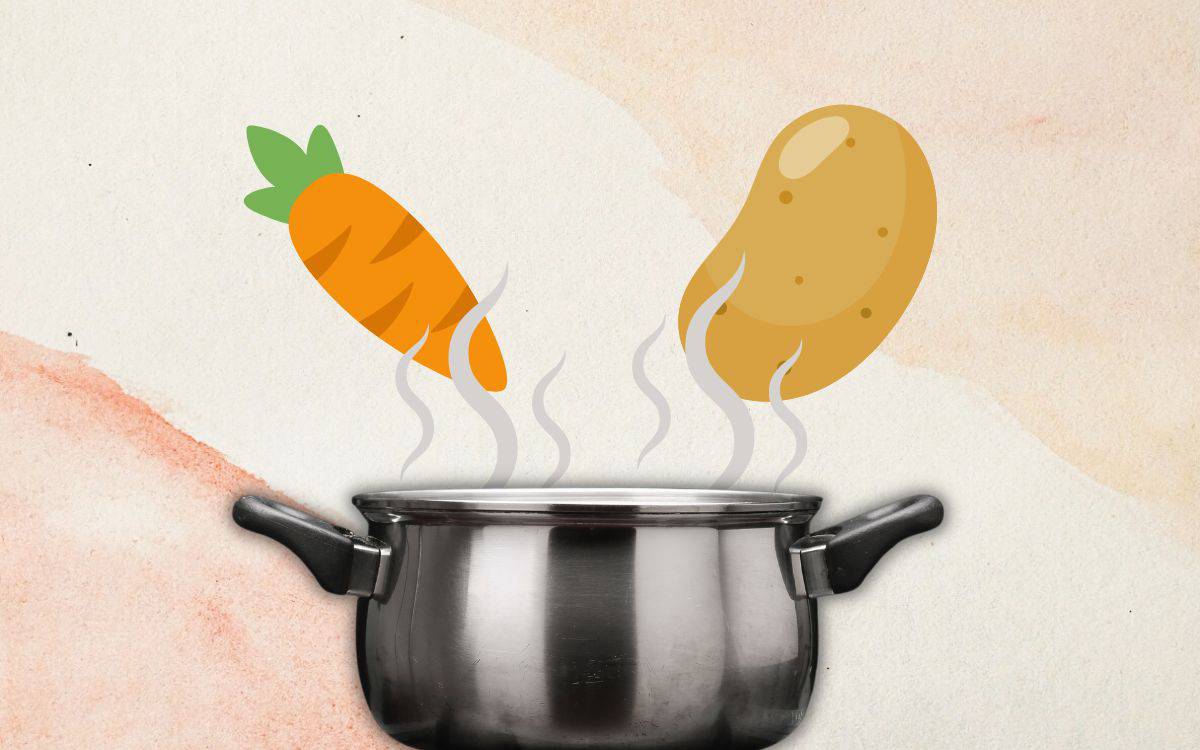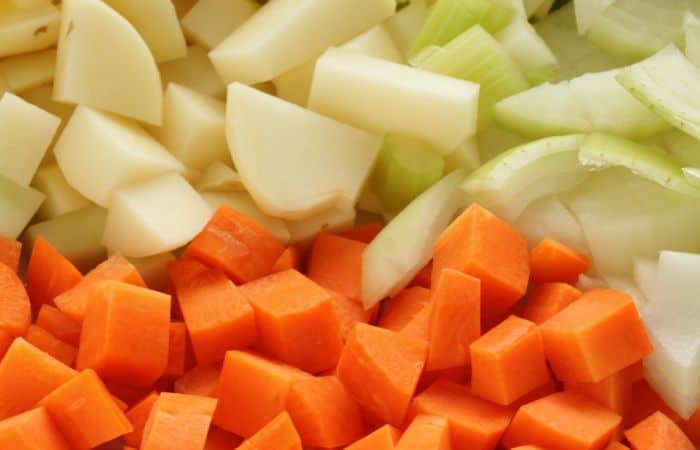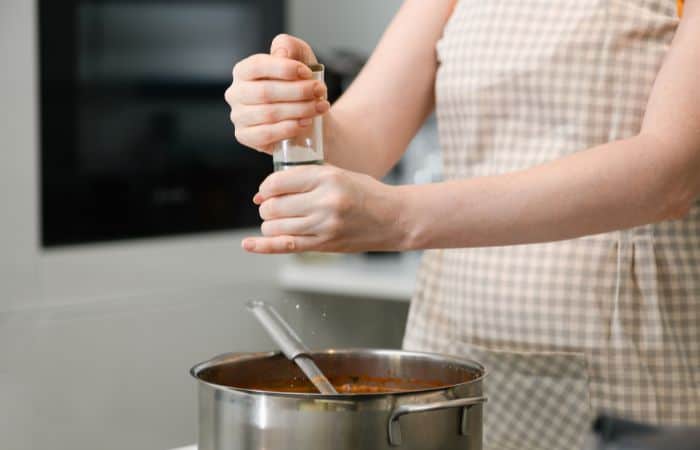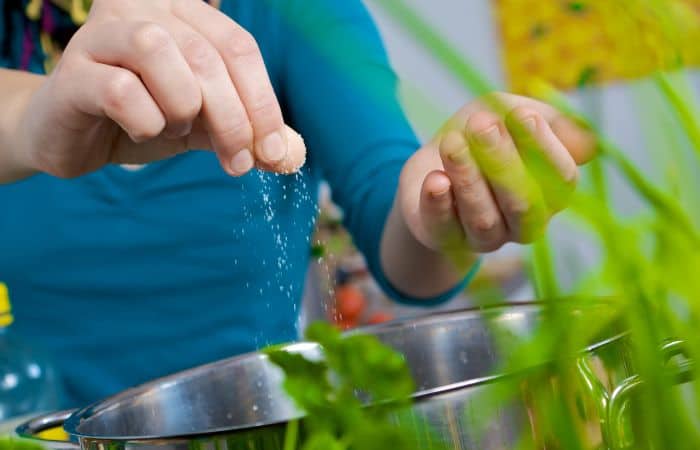Boiling is a popular cooking method for many vegetables, including potatoes and carrots. It is a simple and effective way to cook these root vegetables, and it preserves their natural flavors and nutrients. However, the cooking time can be crucial to achieving the desired texture and flavor. Overcooked vegetables can be mushy and lack flavor, while undercooked ones can be tough and tasteless. Therefore, it is essential to know how long to boil potatoes and carrots to get the perfect results.

In this blog post, we will explore the recommended boiling times for potatoes and carrots, as well as some tips on how to prepare and test them for doneness. Whether you are cooking a simple side dish or a more elaborate recipe, mastering the art of boiling potatoes and carrots can take your cooking skills to the next level.
How Long to Boil Potatoes
Potatoes come in different sizes and varieties, and their boiling time can vary depending on these factors. As a general rule, smaller potatoes cook faster than larger ones, and waxy potatoes (such as new potatoes) cook faster than starchy ones (such as russet potatoes). Altitude can also affect boiling time, with higher altitudes requiring longer cooking times. Here are some recommended boiling times for different types of potatoes:
- New potatoes (1-2 inches in diameter): 15-20 minutes
- Red potatoes (2-3 inches in diameter): 20-25 minutes
- Yukon gold potatoes (2-3 inches in diameter): 25-30 minutes
- Russet potatoes (3-4 inches in diameter): 30-35 minutes
To test potatoes for doneness, insert a fork or knife into the thickest part of the potato. If it slides in and out easily, the potato is done. Avoid overcooking the potatoes, as they can become mushy and lose their shape and flavor. Once the potatoes are cooked, drain them and allow them to cool for a few minutes before using them in your recipe.
How Long to Boil Carrots
Carrots can also vary in size and freshness, which can affect their boiling time. Fresher carrots tend to cook faster than older ones, while thicker carrots may require more time to cook through. Here are some recommended boiling times for different types of carrots:
- Baby carrots: 5-10 minutes
- Thinly sliced carrots: 10-15 minutes
- Medium-sized carrots: 15-20 minutes
- Large carrots: 20-25 minutes
To test carrots for doneness, use a fork or knife to pierce the thickest part of the carrot. If it slides in easily, the carrot is cooked. Be careful not to overcook the carrots, as they can become mushy and lose their bright color and flavor. Once the carrots are cooked, drain them and rinse them with cold water to stop the cooking process and preserve their texture and color. You can also add a bit of butter or seasoning to enhance their flavor. Boiled carrots can be used as a side dish or as an ingredient in soups, stews, and salads.

How to Prepare Potatoes and Carrots for Boiling
Proper preparation is key to achieving perfectly boiled potatoes and carrots. Here are some tips on how to prepare these vegetables:
Selection and Cleaning
When selecting potatoes and carrots, look for fresh, firm, and blemish-free vegetables. Scrub them under running water to remove any dirt or debris. If you are using organic potatoes or carrots, you can leave the skin on to add extra nutrients and flavor.
Peeling and Cutting
If you prefer to peel your potatoes or carrots, use a vegetable peeler to remove the skin. Then, cut them into even-sized pieces to ensure even cooking. For potatoes, you can cut them into cubes, wedges, or slices, depending on your recipe. For carrots, you can cut them into rounds, sticks, or julienne strips.
Tips for Even Cooking
To ensure that your potatoes and carrots cook evenly, try to cut them into similar sizes and shapes. This will help them cook at the same rate and prevent some pieces from being overcooked or undercooked. You can also add salt to the boiling water to enhance the flavor of the vegetables. However, avoid adding too much salt, as it can make the vegetables too salty. Finally, keep an eye on the boiling water and adjust the heat as needed to maintain a gentle boil.
Can I Boil Potatoes and Carrots Together in The Same Pot?
Yes, you can boil potatoes and carrots together in the same pot, especially if you plan to use them in the same recipe. However, keep in mind that the cooking time may vary for each vegetable, so you may need to adjust the boiling time accordingly. As a general rule, start by adding the potatoes to the boiling water and cook them for a few minutes before adding the carrots, as potatoes usually take longer to cook. Alternatively, you can cut the carrots into smaller pieces to match the size of the potatoes, so that they cook at the same rate. Be sure to check both vegetables for doneness before removing them from the boiling water. Once the vegetables are cooked, drain them and use them in your recipe as desired.
What Are Some Ways to Enhance the Flavor of Boiled Potatoes and Carrots?
Boiled potatoes and carrots can be delicious on their own, but there are several ways to enhance their flavor and make them more appetizing. Here are some ideas:
Add Butter
A pat of butter can make boiled potatoes and carrots taste richer and creamier. Simply add a small amount of butter to the pot or drizzle it over the vegetables after cooking.
Season with Herbs
Fresh or dried herbs can add a burst of flavor to boiled vegetables. Some popular options include rosemary, thyme, parsley, and dill. You can add the herbs to the pot while cooking, or sprinkle them over the vegetables after draining.
Use Chicken or Vegetable Broth
Instead of using plain water to boil your vegetables, you can use chicken or vegetable broth to add more flavor. The broth will infuse the vegetables with savory notes and make them taste more complex.
Add Spices
Spices such as cumin, paprika, garlic powder, or onion powder can add depth of flavor and make your boiled vegetables more interesting. Sprinkle the spices over the vegetables while they are cooking, or toss them with the vegetables after draining.

Serve with A Dipping Sauce
You can serve boiled potatoes and carrots with a dipping sauce, such as ranch dressing, hummus, or aioli, to add more flavor and texture. This can be especially helpful if you are serving the vegetables as a side dish or appetizer.
What Are Some Common Mistakes to Avoid when Boiling Potatoes and Carrots?
Here are some common mistakes to avoid when boiling potatoes and carrots:
Overcooking
Overcooking can cause the potatoes and carrots to become mushy and lose their texture. To avoid this, keep a close eye on the vegetables while they are boiling and check them for doneness frequently.
Undercooking
Undercooked vegetables can be tough and unpleasant to eat. To ensure that the vegetables are fully cooked, make sure to boil them for the recommended time, or until they are tender when pierced with a fork.
Uneven Sizing
Unevenly sized vegetables will not cook at the same rate, which can lead to some pieces being overcooked or undercooked. Try to cut the vegetables into even-sized pieces to ensure that they cook evenly.

Using Too Much Salt
While adding salt to the boiling water can enhance the flavor of the vegetables, using too much can make them too salty. Start with a small amount and add more as needed.
Not Adding Enough Water
If you don’t add enough water to the pot, the vegetables may not cook evenly or may stick to the bottom of the pot. Make sure to use enough water to cover the vegetables by at least an inch.
Using Old or Soft Vegetables
Old or soft vegetables may not cook properly and can lead to a less appetizing texture. Always use fresh and firm vegetables for the best results.
Not Draining the Vegetables Properly
If you don’t drain the vegetables properly, they can become waterlogged and lose their flavor. Make sure to drain them thoroughly and pat them dry with a paper towel if necessary.




